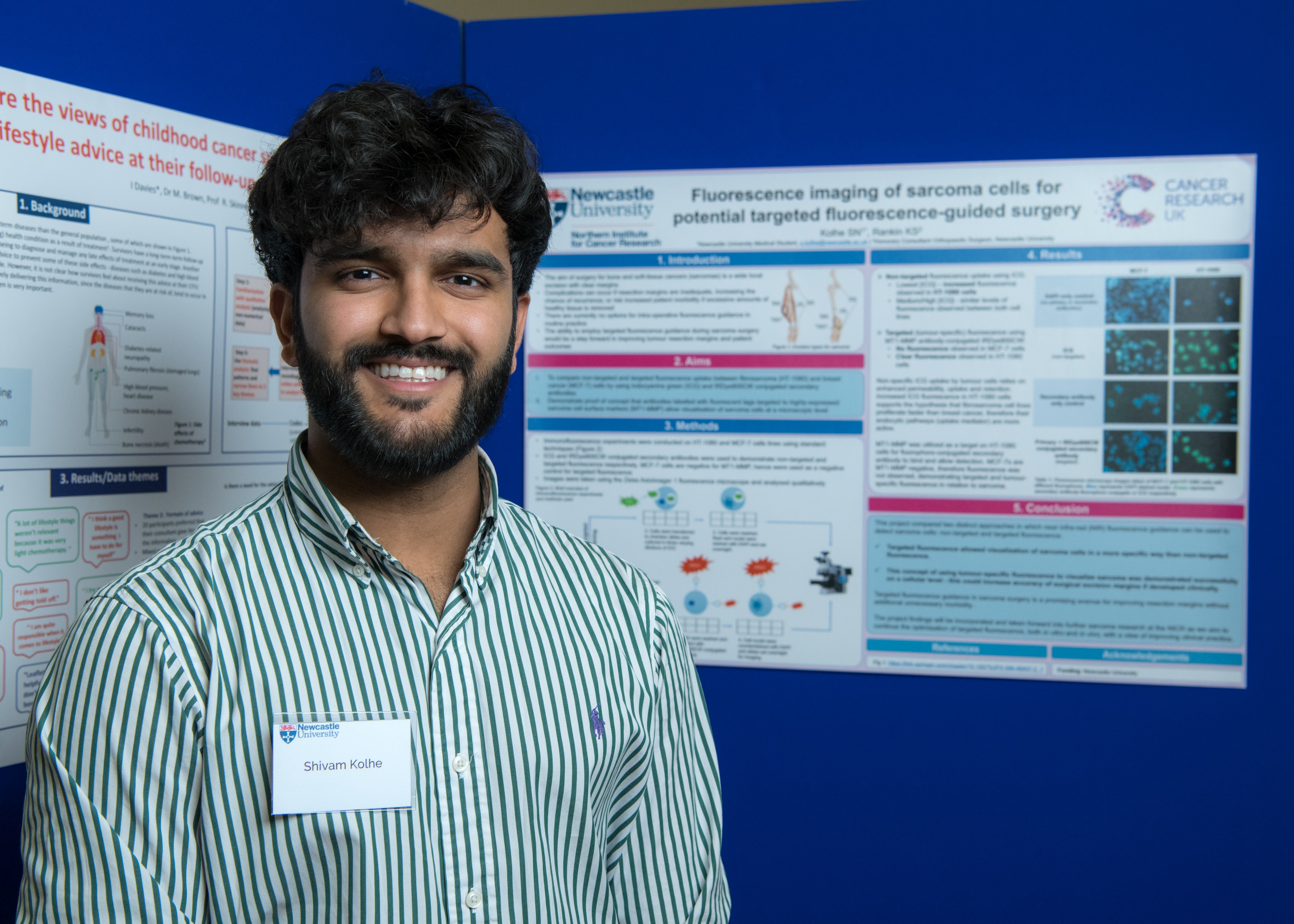2019 participants
 Shiv Kolhe
Shiv Kolhe
- MBBS
- In vitro immunofluorescence imaging of sarcoma cells for potential targeted fluorescence-guided surgery
Introduction:
Bone and soft-tissue cancers (sarcomas) are primarily treated by wide surgical excision, with complications occurring if resection margins are inadequate or excess tissue is removed. With no current options for targeted fluorescence-guided surgery, this project establishes that certain fluorescently labelled proteins (antibody-fluorophore conjugates) will attach to overexpressed sarcoma cell-surface targets (MT1-MMP) allowing visualisation of sarcoma margins.
Methods:
Immunofluorescence experiments were carried out with two different fluorophores (IR800DyeCW and ICG) on sarcoma (HT-1080) and breast cancer cells (MCF-7: negative control) to demonstrate targeted and non-targeted fluorescence uptake respectively.
Results:
Increased fluorescence was observed exclusively in incubated HT-1080 cells with IR800DyeCW, whereas ICG fluorescence was increased in the HT-1080s relative to MCF-7s at its lowest concentration.
Conclusion:
The use of targeted antibody-fluorophore conjugates allowed differentiation between sarcoma and breast cancer cells; demonstrating the concept of targeted fluorescence in relation to sarcoma, for future research aiming to also improve sarcoma resection margins.
Funding source: Newcastle University
Project supervisor: Mr Kenneth Rankin
